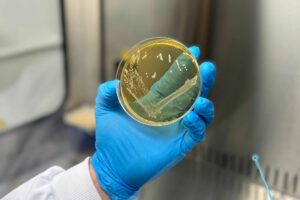Video
Mahesh Desai, group leader of the Eco-Immunology and Microbiome team at the Luxembourg Institute of Health and adjunct associate professor at the University of Southern Denmark, discusses about his research…
Industry
The race toward evidence-based microbiome nutrition has just found its new headquarters.
Pediatrics, Gynecology
Maternal oral microbiota plays a key role in influencing infant gut health and disease risk.
Oncology
A recent study highlights formate as a potential target to boost cancer treatment.
Industry
The company is now taking a decisive step from laboratory-scale research to industrial-scale biofermentation.
The Bold Column
Recent studies have identified various bacterial and fungal pathobionts in patients with CD and UC.
Video
Patrick Veiga, Gut Microbiome & Nutrition Research Director at INRAE (France), discusses one of the major challenges in probiotic research: the variability of clinical trial outcomes.
Video
Professor Alessandro Gramenzi discusses the current knowledge of the gut microbiota in companion animals and the opportunities to modulate it through nutritional interventions.
A study demonstrates that synbiotic supplementation, alone or combined with GDH, is a safe and effective adjunct therapy for autistic children with DGBI.
Gastroenterology, Nutrition
Calcium ions affect the growth of both L. acidophilus ATCC 4356 and L. plantarum ATCC 14917, despite some differences.












